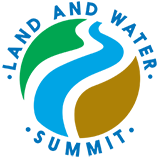The Land and Water Summit recognizes that conservation, social and environmental justice, and public health are interconnected. Yet, we have much to learn about the history and implications of this relationship. We feel strongly that everyone deserves a healthy environment free from harassment and should have a voice in shaping what that means for their community. However, historical systemic exclusion and marginalization have meant that many communities have been denied the benefits of conservation and conservation education. Moreover, low-income communities and communities of color have experienced significantly greater impacts from contaminated water and soils, polluted air, and impacts from the climate emergency. These inequities have resulted in compromised public health in low-income communities and communities of color, placing them at greater risk for poor health outcomes.
The Land and Water Summit is committed to making our conference more accessible to all community members. This is not only a moral imperative but providing opportunities and resources to a diverse array of participants will also result in healthier land and water, with resultant improvements in public health. By investing in efforts that foster justice, equity, diversity, and inclusion (JEDI), we commit to creating more effective and enduring benefits for all participants. In our efforts to make the Land and Water Summit as accessible as possible for all members of our community, we welcome input and critique from conference participants.

